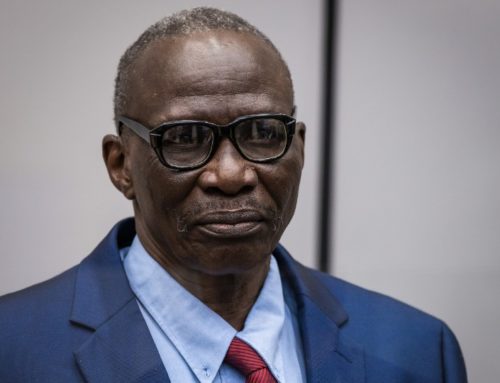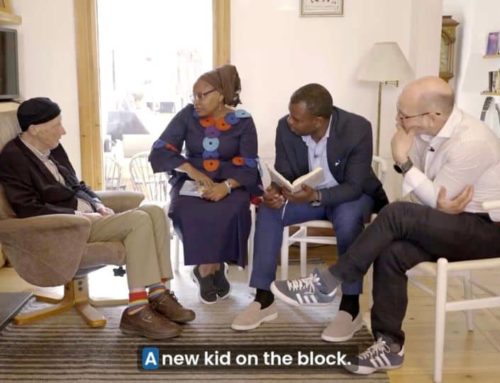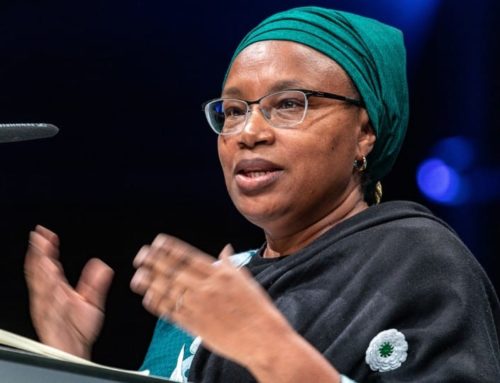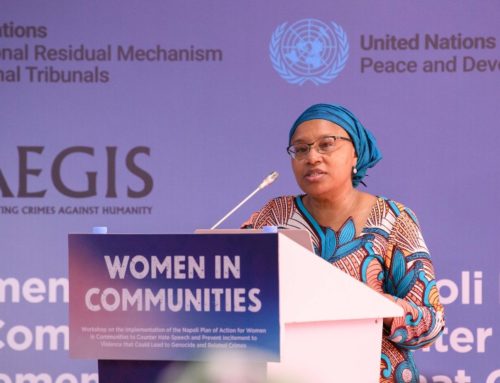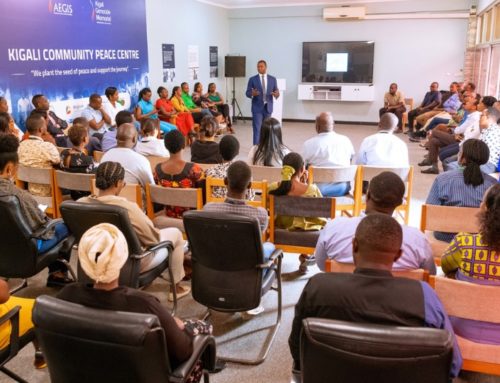 6 July 2012 – In this short film released today, Aegis captures the moment the Sudanese community in the UK came together on London’s streets for the first time in a unified call for President Bashir – the only head of state in the World currently wanted for genocide – to leave office and answer for his crimes at the International Criminal Court.
6 July 2012 – In this short film released today, Aegis captures the moment the Sudanese community in the UK came together on London’s streets for the first time in a unified call for President Bashir – the only head of state in the World currently wanted for genocide – to leave office and answer for his crimes at the International Criminal Court.
The moment came last Saturday, 30 June, on the 23rd anniversary of Bashir’s seizure of power in Sudan and little more than a week ahead of the first anniversary of South Sudan’s independence (which will be marked on Monday, 9 July).
With the Sudanese Government blocking food aid from hundreds of thousands bombed out of their homes in the Nuba Mountains and Blue Nile during the past year, activists, Darfuri and Nuba groups had organised delivery of a petition to 10 Downing Street calling on UK Prime Minister David Cameron and the British Government to take assertive diplomatic action to secure humanitarian access. The London organisers expected at least a few dozen Nuban and Darfuri refugees to take part. They did not expect what actually happened: hundreds of Sudanese, from right across Sudan, pouring onto the streets in solidarity with the Nubans and with demonstrators back home.
“There’s two options. They either step down or we will topple them.”
As Baroness Cox, Nuba and Darfuri representatives entered Downing Street with the petition, Whitehall echoed to Arabic chants of “Khartoum, revolt, revolt! We’ll not be ruled by Kafori!” (Kafori was the birthplace of Omar Bashir). And then in English, “El Bashir to ICC!”
Protests have shaken Khartoum in recent weeks following imposition of harsh austerity measures triggered by South Sudan halting the flow of its oil to the north in January.
“I think there’s a misconception that the revolts are only purely because of austerity measures that have been recently put in place,” one young woman comments in Aegis’ film at the demonstration. “There’s been protests since January of 2011 around human rights violations that are occurring in Sudan.”
Ali Mahmoud Hassanein, Vice President of Sudan’s Democratic Unionist Party, also comments in the film. “People are fed up of this regime because of so many reasons. Because of the bad relationship between the north and the south; because of the war in Darfur; because of the war in the Nuba Mountains; because of the war in the Blue Nile area; because of the suppression and oppression of people all over Sudan; because of the malpractice of the government in economic matters. People are quite fed up, and they have come to a point where they cannot coexist with this regime.”
One placard read, ‘We are all Elbow-Lickers’ – a reference to Omar Bashir’s jibe that anyone who wants to overthrow the Sudanese Government can lick his elbow. Another read, ‘keep calm and tweet the revolution’ – a modern Sudanese twist on the popular British wartime poster ‘keep calm and carry on’. With Sudan’s mainstream media state-controlled, and with western media leaving Sudan a long way down the priority list, activists in Khartoum are taking to Twitter under the hashtag #SudanRevolts to make themselves heard – at home and around the World. Hundreds have been jailed in Sudan in recent weeks.
“This is a very violent, autocratic regime. These people are actually going out and killing people, don’t make any mistake about that,” says one Sudanese London demonstrator on Aegis’ film. “You look in the Nuba Mountains at what they’re doing now, they’re basically just bombarding people in the mountains. These are normal civilians. So this is the kind of regime you’re dealing with. Even on a day-to-day basis, you feel it in Sudan.”
Outside the Sudanese Embassy, the crowd took up a powerful chant that has become emblematic of the Arab spring. It translates simply: “The nation needs a change of regime.”
“People think it’s an Arab Spring, a new thing,” says one young man. “We’ve actually done this twice before. In Sudan it’s happened once in the ‘50s and once again in ‘85. So we can really change things again.”
“They either step down or we will topple them,” says another. “There’s two options. There’s no further alternative, and it’s about time that we get rid of them.”
“Captured in today’s film from Aegis is a sense both of optimism and new-found determination among the Sudanese community to overthrow their dictator,” says the Aegis Trust’s Special Representative Dr Mukesh Kapila, former Head of the UN in Sudan. “I’m greatly heartened by this. I also find it remarkable that in its first year as a nation, by stopping oil production South Sudan has succeeded in generating the kind of economic pressure for change in Khartoum that the international community failed to generate in over two decades.”
The petition to Prime Minister David Cameron was supported by the Aegis Trust, Darfur Union UK, Humanitarian Aid Relief Trust (HART), Nuba Now Campaign, Nuba Mountains Solidarity Abroad, Waging Peace and Mission Aviation Fellowship (MAF).

